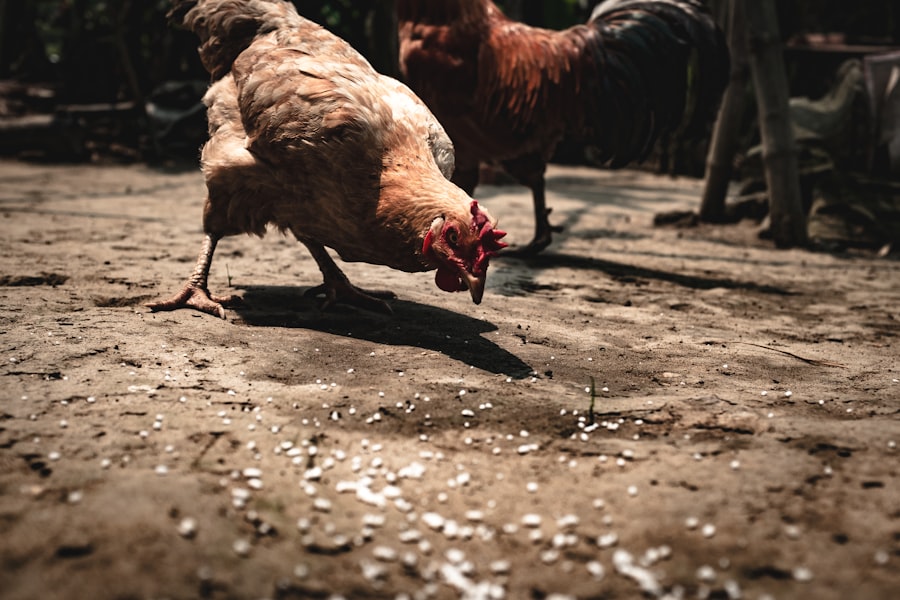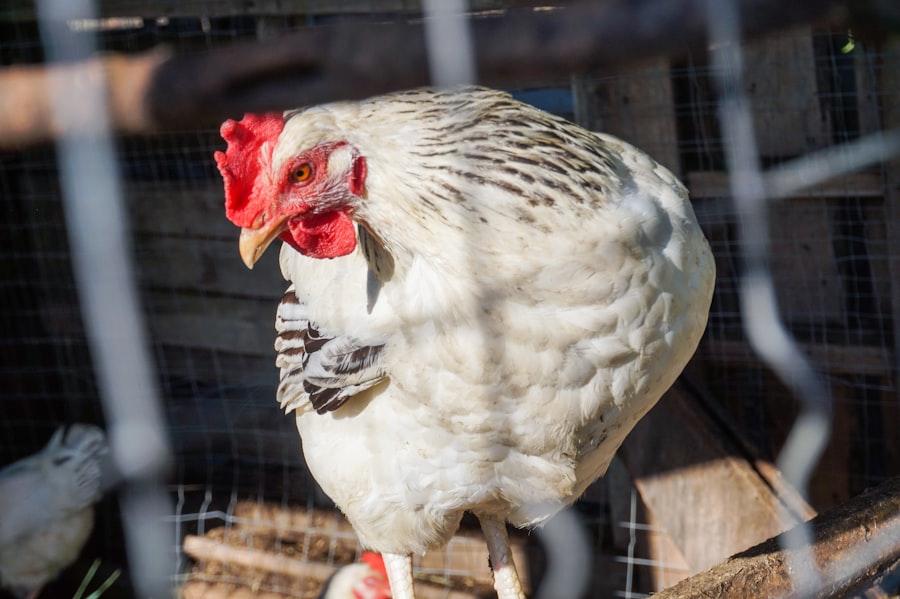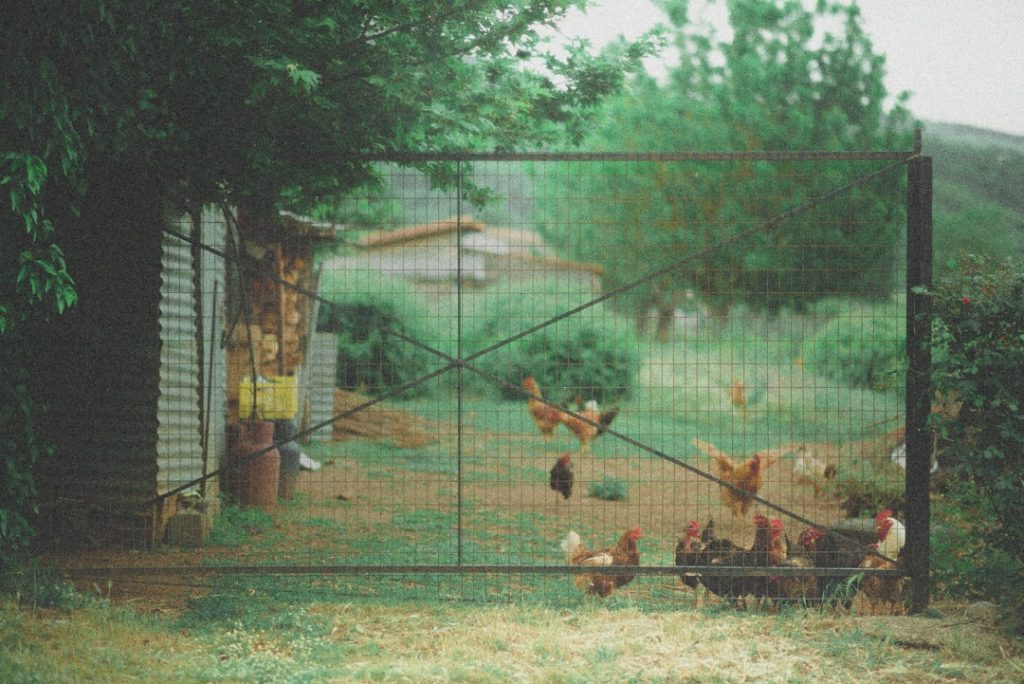Raising chickens can be a rewarding and fulfilling experience, but it’s important to understand the basics of chicken keeping before diving in. First and foremost, it’s essential to provide your flock with a safe and secure coop to protect them from predators and the elements. The coop should also have proper ventilation and insulation to ensure the chickens’ comfort and well-being.
Additionally, chickens require a balanced diet consisting of high-quality feed, fresh water, and occasional treats such as fruits and vegetables. It’s important to research the nutritional needs of your specific breed of chickens to ensure they are receiving the proper nutrients for optimal health. Furthermore, understanding the behavior and social dynamics of chickens is crucial for successful chicken keeping.
Chickens are social animals that thrive in a flock environment, so it’s important to provide them with enough space to roam and establish a pecking order. Additionally, providing enrichment activities such as dust baths, perches, and nesting boxes can help keep your chickens mentally and physically stimulated. Lastly, it’s important to be aware of common health issues that can affect chickens, such as respiratory infections, parasites, and injuries.
Regular health checks and prompt treatment of any issues are essential for maintaining a healthy flock. In conclusion, understanding the basics of chicken keeping is essential for the well-being of your flock. Providing a safe and secure coop, a balanced diet, and enrichment activities, as well as being aware of common health issues, are all crucial aspects of successful chicken keeping.
Table of Contents
- 1 Establishing a Monitoring System for Your Flock
- 2 Utilizing Technology for Chicken Tracking
- 3 Implementing Regular Health Checks and Record-keeping
- 4 Keeping a Close Eye on Egg Production
- 5 Maintaining a Clean and Organized Coop
- 6 Seeking Professional Help When Necessary
- 7 FAQs
- 7.1 What are some ways to keep track of your chickens?
- 7.2 Why is it important to keep track of your chickens?
- 7.3 What information should be recorded when keeping track of chickens?
- 7.4 How often should I check on my chickens to keep track of them?
- 7.5 Are there any technological tools available to help keep track of chickens?
Key Takeaways
- Chicken keeping requires understanding the basics of their care, including housing, feeding, and behavior.
- Establishing a monitoring system for your flock is essential to keep track of their health, behavior, and egg production.
- Utilizing technology, such as tracking devices and apps, can help you keep better track of your chickens and their activities.
- Implementing regular health checks and record-keeping is crucial for identifying and addressing any health issues in your flock.
- Keeping a close eye on egg production can help you identify any potential issues with your chickens’ health or environment.
- Maintaining a clean and organized coop is important for the health and well-being of your chickens.
- Seeking professional help when necessary, such as from a veterinarian or experienced chicken keeper, can provide valuable support and guidance for keeping your flock healthy and happy.
Establishing a Monitoring System for Your Flock
Visual Inspections
Conducting regular visual inspections of your chickens is essential to detect any signs of illness or injury. Look out for symptoms such as lethargy, abnormal posture, discolored or swollen skin, or changes in behavior.
Monitoring Eating and Drinking Habits
Monitoring your chickens’ eating and drinking habits can provide valuable insights into their overall health. Any changes in appetite or water consumption should be noted and investigated further.
Tracking Egg Production and Quality
Keeping track of your chickens’ egg production is vital to identify potential issues such as stress, illness, or changes in environmental conditions. Record the number of eggs laid each day and monitor any fluctuations in production. Additionally, establish a system for tracking egg quality, keeping an eye out for abnormalities in egg size, shape, or shell quality, as these can be indicators of underlying health problems.
By implementing these monitoring systems, you can ensure the health and well-being of your flock and take prompt action if any issues arise.
Utilizing Technology for Chicken Tracking

In today’s digital age, there are a variety of technological tools available to help chicken keepers track and monitor their flocks more effectively. One such tool is the use of electronic leg bands or microchips to individually identify and track each chicken in the flock. This can be particularly useful for large flocks or for breeders who need to keep detailed records of each bird’s lineage and performance.
Additionally, there are smartphone apps available that can help chicken keepers track egg production, monitor feeding and watering schedules, and even provide alerts for potential health issues. Another technological advancement that can be beneficial for chicken tracking is the use of surveillance cameras in the coop. This allows chicken keepers to remotely monitor their flock’s behavior and activity, as well as keep an eye out for any signs of distress or illness.
Some cameras even have features such as night vision and motion detection, providing 24/7 monitoring capabilities. Furthermore, there are automated feeding and watering systems available that can help ensure your flock receives consistent and timely access to food and water, even when you’re not able to be present. In conclusion, utilizing technology for chicken tracking can provide valuable insights into your flock’s behavior, health, and productivity.
Electronic identification tools, smartphone apps, surveillance cameras, and automated feeding systems are all examples of how technology can be used to enhance the monitoring and care of your flock.
Implementing Regular Health Checks and Record-keeping
In addition to visual inspections and technological tools, implementing regular health checks and record-keeping is essential for maintaining a healthy flock. This includes conducting routine physical exams of each chicken to check for any signs of illness or injury. Pay close attention to their eyes, nostrils, beak, comb, wattles, legs, feet, and vent for any abnormalities.
Additionally, checking for parasites such as mites or lice is an important part of regular health checks. Record-keeping is also crucial for tracking your flock’s health and productivity over time. Keep detailed records of any health issues or injuries, as well as any treatments administered.
This can help you identify patterns or trends in your flock’s health and make informed decisions about their care. Furthermore, keeping track of egg production, feed consumption, and any changes in behavior can provide valuable insights into your flock’s overall well-being. In conclusion, implementing regular health checks and record-keeping is essential for maintaining a healthy and productive flock.
Conducting routine physical exams, checking for parasites, and keeping detailed records of health issues and productivity are all important aspects of effective flock management.
Keeping a Close Eye on Egg Production
Egg production is a key indicator of your flock’s overall health and well-being, so it’s important to keep a close eye on their laying habits. Monitoring the number of eggs laid each day can help you identify any potential issues such as stress, illness, or changes in environmental conditions. Additionally, tracking the size and quality of the eggs can provide valuable insights into your flock’s nutritional status and overall health.
It’s also important to be aware of factors that can impact egg production, such as age, breed, season, and environmental conditions. For example, older hens may lay fewer eggs than younger hens, and certain breeds are known for their high egg production. Additionally, changes in daylight hours or extreme temperatures can impact egg laying patterns.
By understanding these factors and keeping a close eye on egg production, you can better manage your flock’s laying habits. In conclusion, keeping a close eye on egg production is essential for monitoring your flock’s health and productivity. By tracking the number, size, and quality of eggs laid each day and being aware of factors that can impact egg production, you can ensure that your flock remains healthy and productive.
Maintaining a Clean and Organized Coop

Preventing Health Issues
Additionally, providing proper ventilation in the coop helps reduce moisture levels and ammonia buildup, which can cause respiratory issues in chickens.
Coop Layout and Essentials
Organizing the coop layout to provide ample space for roosting, nesting boxes, feeding stations, and dust bathing areas is also important for your flock’s well-being. Ensuring that there are enough perches for all chickens to roost comfortably at night helps reduce stress and aggression within the flock. Providing enough nesting boxes with clean bedding encourages hens to lay eggs in a safe and comfortable environment.
A Healthy Living Environment
In conclusion, maintaining a clean and organized coop is crucial for providing a healthy living environment for your flock. Regular cleaning, proper ventilation, and an organized layout all contribute to the overall well-being of your chickens.
Seeking Professional Help When Necessary
Despite your best efforts to monitor and care for your flock, there may be times when professional help is necessary. If you notice any signs of illness or injury in your chickens that you are unsure how to address, it’s important to seek guidance from a veterinarian with experience in poultry care. A veterinarian can provide a proper diagnosis and treatment plan to help your chickens recover from any health issues.
Additionally, if you are experiencing challenges with egg production or behavioral issues within your flock that you are unable to resolve on your own, seeking advice from an experienced poultry specialist or animal behaviorist can be beneficial. These professionals can offer valuable insights into managing your flock’s health and behavior. In conclusion, seeking professional help when necessary is an important part of responsible chicken keeping.
Veterinarians with poultry experience and poultry specialists can provide valuable guidance in addressing health issues or behavioral challenges within your flock.
If you’re looking for tips on how to keep track of your chickens, you might also be interested in learning about the best way to transport your chicken coop. Check out this article on how to properly portage your chicken coop for some helpful advice on keeping your chickens safe and secure while on the move.
FAQs
What are some ways to keep track of your chickens?
Some ways to keep track of your chickens include using leg bands, wing bands, or tags with unique identification numbers. You can also keep records of their physical characteristics and behaviors.
Why is it important to keep track of your chickens?
Keeping track of your chickens is important for monitoring their health, tracking egg production, and identifying individual birds. It also helps in identifying any potential issues or problems within the flock.
What information should be recorded when keeping track of chickens?
When keeping track of chickens, it is important to record information such as individual identification numbers, hatch dates, breed, health records, egg production, and any notable behaviors or characteristics.
How often should I check on my chickens to keep track of them?
It is recommended to check on your chickens at least once a day to monitor their health, behavior, and egg production. Regular checks also help in identifying any issues or changes within the flock.
Are there any technological tools available to help keep track of chickens?
Yes, there are technological tools such as electronic leg bands, RFID tags, and tracking apps that can help in keeping track of chickens. These tools can provide real-time data on individual birds and their activities.
Meet Walter, the feathered-friend fanatic of Florida! Nestled in the sunshine state, Walter struts through life with his feathered companions, clucking his way to happiness. With a coop that’s fancier than a five-star hotel, he’s the Don Juan of the chicken world. When he’s not teaching his hens to do the cha-cha, you’ll find him in a heated debate with his prized rooster, Sir Clucks-a-Lot. Walter’s poultry passion is no yolk; he’s the sunny-side-up guy you never knew you needed in your flock of friends!







